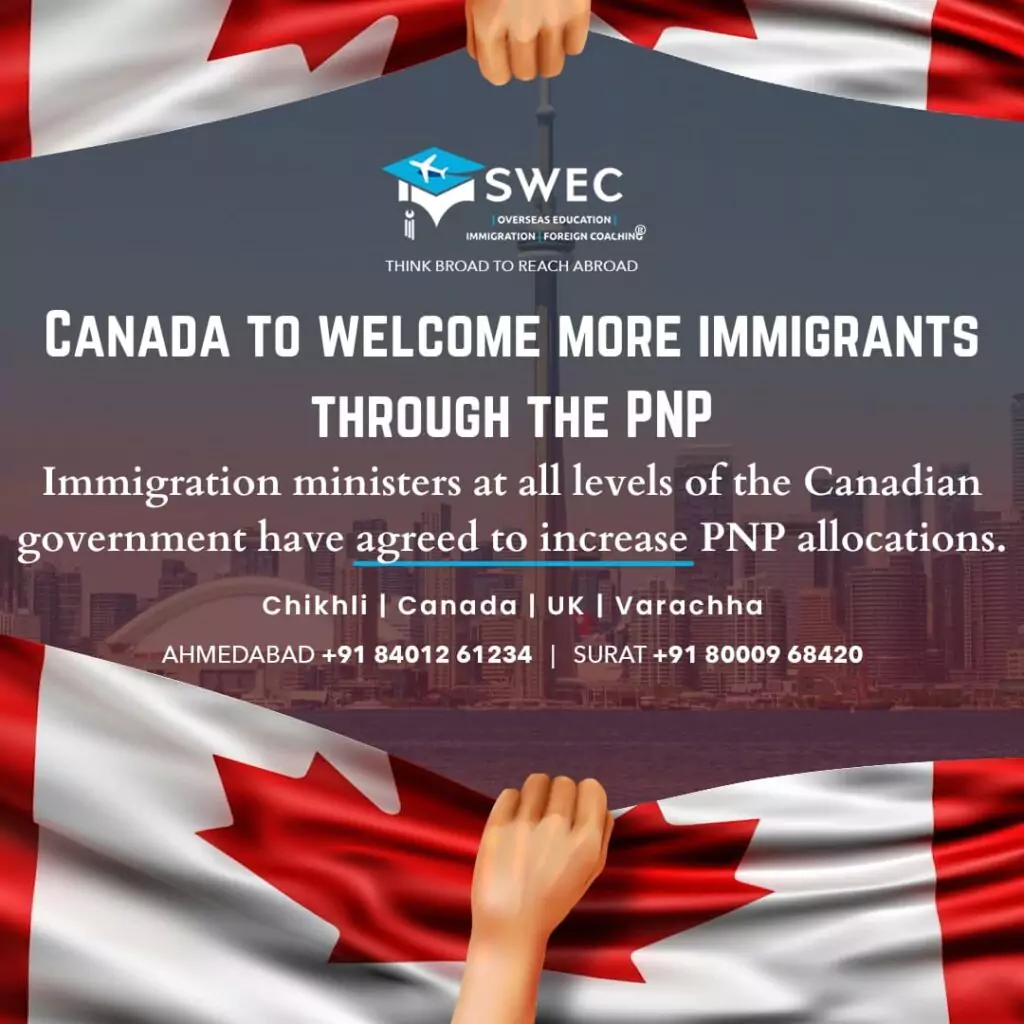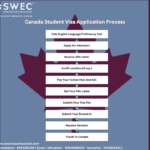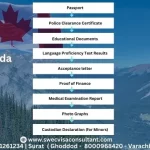
Latest CIC News: Canada to welcome 105000 immigrants via the PNP in 2023
Canada’s Provincial Nominee Programs (PNPs) have recently overtaken the federal Express Entry system as the leading way for economic class candidates to gain Canadian permanent residence (PR).
This comes at a time when the number of immigrants coming to Canada through the PNP is expected to exceed 105,000 in each of the next three years. In fact, under the Immigration Levels Plan 2023-2025, the number of Canadian immigrants through the PNP is set to rise to 105,500 this year and 117,500 by 2025.
Note: When Immigration, Refugees and Citizenship Canada (IRCC) launched the PNP back in 1998, just 400 PNP immigrants came to Canada through this program the following year.
The purpose of the PNP
The recent and upcoming boom in PNP immigrants to Canada is a product of provincial and territorial governments needing and requesting more skilled immigrants to fill specific labor gaps in their region. In other words, the purpose of this program is to spread the economic, social, and cultural benefits of immigration across the country and Canada is increasing the number of PNP immigrants to aid in this goal.
This goal is accomplished through the PNP because it allows every participating province or territory to offer PR to hand-picked immigration candidates who are interested in calling their province/territory home.
Note: 11 of Canada’s provinces and territories, excluding Quebec and Nunavut, operate a PNP. Quebec operates its own economic class immigration programs through a separate agreement with the federal government.
Recent PNP developments
In light of the desire to attract more skilled immigrants to each province/territory across Canada, Canada’s federal, provincial, and territorial immigration ministers met last July and agreed to create a new multi-year immigration plan specific to the PNP. This plan was designed to give the two levels of government more ability to plan immigrant attraction and settlement across the country.
Earlier this month, immigration ministers from each province and territory met with federal authorities again, where they re-endorsed the multi-year PNP plan during the bi-annual Forum of Ministers Responsible for Immigration (FMRI).
Since the March 10th meeting, provinces have started to unveil their new PNP allocations, beginning with Ontario.
Ontario’s immigration minister had made it clear that the province sought more control over its economic class immigration programs. In an interview with CIC News last July, Monte McNaughton noted at the time that “Ontario chooses less than 5% of [its over 211,000] immigrants” in 2022. Accordingly, the minister said that he would be making two primary requests to the federal government.
The first request was to have more autonomy over economic immigration in Ontario and the second was to see the province’s PNP allocation double to 18,000.
This past Saturday, Ontario and the federal government announced that the province’s wish was being granted, as Ontario will now be seeing its PNP allocation rise to 18,000 per year by 2025.
At the time of writing, several other provinces have also announced their future PNP allocations.
Alberta will see its allocation rise to 10,849 in 2025. Saskatchewan’s PNP allocation will rise to 8,500 by 2025. Manitoba is seeing its allocation grow to 9,500 this year.
Yukon has announced that they have been allocated 430 PNP spots for 2023, up from 300 last year.
How to apply for the PNP for Canada PR Visa
PNPs offer skilled immigrants the opportunity to immigrate to Canada through base nominations as well as enhanced nominations.
The key difference between base and enhanced PNP nominations is that enhanced PNP nominations are processed quicker than base nominations. At the time of writing, IRCC notes that the average processing time for base nominations is 20 months while the processing time for enhanced nominations is 11 months.
Base PNP nominations
Base PNP nominations are made through regular PNP streams outside of the Express Entry system.
To apply and successfully immigrate to Canada via a base PNP nomination, candidates will need to first meet the eligibility criteria for a base PNP stream offered by a province or territory. If a candidate meets the expressed criteria, applies for a nomination, and is approved, they will receive a nomination certificate.
After obtaining this certificate, recipients will be able to apply for PR with Canada’s federal government.
The base PNP application process involves these three basic steps:
1. Upon receiving a provincial nomination, create an online account with IRCC and fill out the application
2. Pay application fees
3. Submit the online application
Enhanced PNP nominations
On the other hand, many Canadian provinces and territories can nominate a certain number of immigration candidates for PR through the Express Entry system. These portions of the PNPs are known as ‘enhanced’ nominations.
Candidates in the Express Entry pool who obtain a PNP nomination are awarded an additional 600 points under the Comprehensive Ranking System (CRS), out of a maximum possible total of 1,200.
These 600 additional CRS points practically guarantee that the recipient will receive an Invitation to Apply at a subsequent draw from the Express Entry pool.
In other words, PNP candidates who are eligible for Express Entry are advised to take time to upload an Express Entry profile because it increases their chances of becoming a Canadian permanent resident. By doing this, PNP candidates open up the possibility of being invited to apply for Canadian PR by the federal government and a provincial or territorial government, increasing the likelihood that they achieve their immigration goals.
Immigration candidates must already be in the Express Entry pool before applying for an enhanced PNP certificate.
Enhanced PNP applications are completed using one of two general processes.
- Periodically, provincial/territorial governments will check the Express Entry pool and invite candidates who express interest in gaining PR there
- Provinces (e.g., Saskatchewan) will tell those in the pool with an interest in moving there to contact/email them so they can review their profile
The enhanced PNP application process involves these four basic steps:
1. Create an IRCC account and submit an Express Entry profile
2. Get an Express Entry stream nomination (or have a prior nomination confirmed by the province/territory)
3. Get an ITA (once the Express Entry nomination is accepted)
4. Fill out the appropriate application online with IRCC
Source: CIC News




